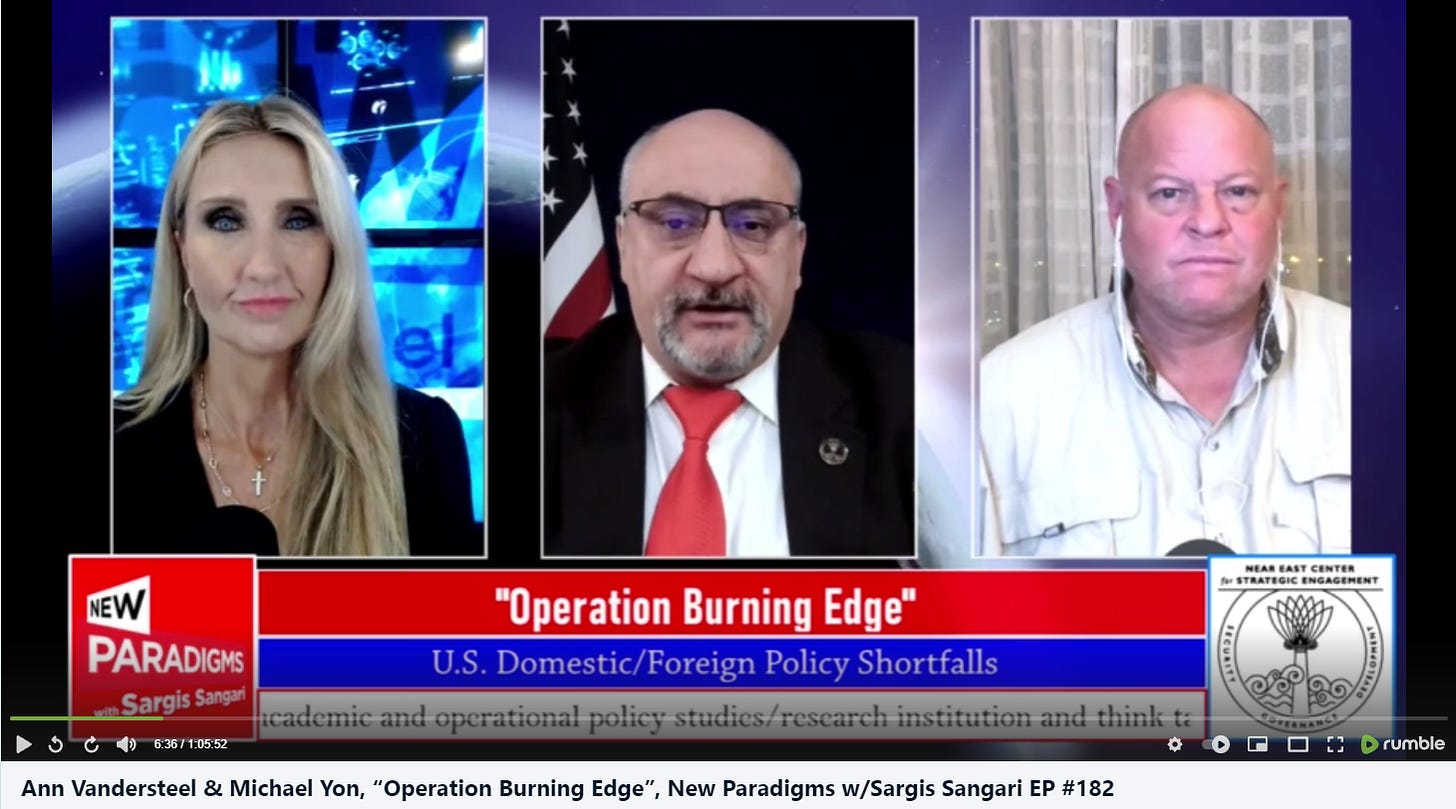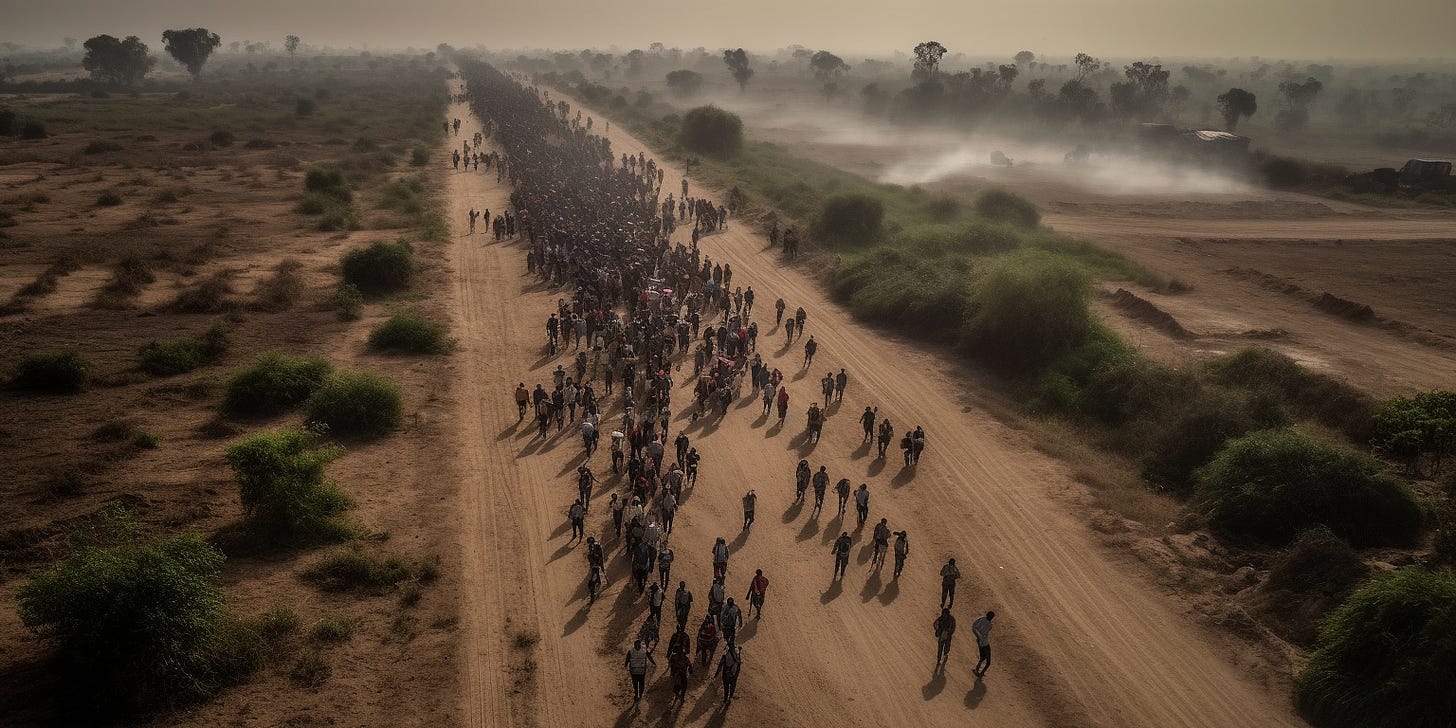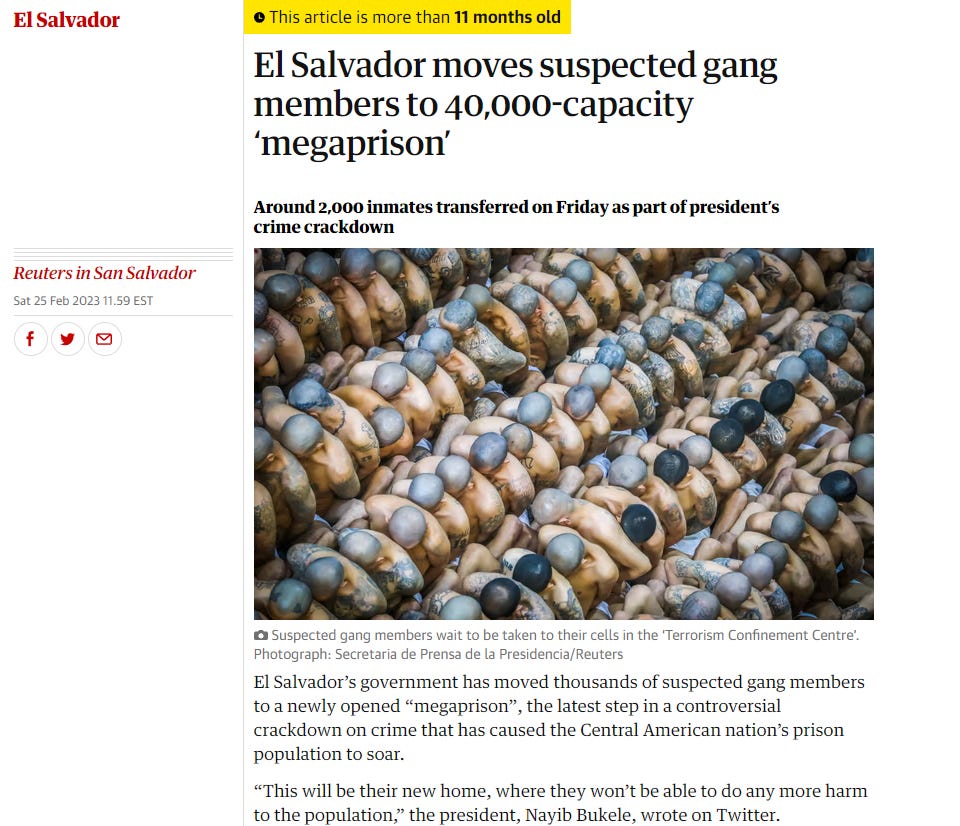Mass Migration as Pivot and Bootstrapping Decentralized Banking?
The Wars of Wars Part 12
Other RTE articles about the Wars of Wars can be found here. Some more active conversation about topics such as this can be found at the RTE Locals channel.
Understand that I'm only thinking out loud here. This is an exploration of hypotheses that have been rattling around in my head. I'm certainly open to being wrong.
Consider the following:
The Tax Cuts and Jobs Act of 2017 included a provision for Qualified Opportunity Zones (QOZs). These 8,764 QOZs are low-income areas in the 50 states and five U.S. possessions. What the program does is allow for U.S. investors to sell assets, such as stock, and invest the proceeds in business and capital improvements in areas that need economic rehabilitation—or perhaps some other plan—without incurring immediate capital gains taxes (liabilities). Such tax deferment can substantially increase the number of worthwhile investments Americans can make, so long as they're willing to roll up their sleeves and do it outside of America's already thriving business sectors.
This policy was a big hit politically for the Trump administration. While it was suggested that the government would lose something like $2T in revenue, many people felt that building business would increase jobs and perhaps eventually even make up for that tax shortfall. Understand that I have no interest in running the numbers, and in this moment, the results seem unpredictable to me—unless there was another plan in place.
Bitcoin and Mass Migration
I keep track of a variety of historical events on two calendars that send me email reminders. This morning one of them let me know that today is the thirteenth anniversary of the first time that Bitcoin traded for $1. If you're wondering, this means that investment in Bitcoin has since averaged 128.7% annual returns with an average doubling time of 10 months, 1 day, 17 hours, 49 minutes, and 19 seconds (at a current price of $46,702).
Trivia aside, the development of the Bitcoin network is a stunning mystery that baits the limber mind into wondering if the psyops of this age extend to the apparent fights over Bitcoin. Do we really know who is pushing it and who is trying to destroy it? Is it possible that bank owners have invested enough in it that they don't care if the banks collapse and die? We should be asking these sorts of questions. At the very least, keeping an open mind allows for us to think about different motivations for strange events.
Over the past couple of weeks we have observed Michael Yon (special forces turned journalist) and Ann Vandersteel reporting from Panama about the constitution of migrants gathering there for the journey north into the United States.

Bret Weinstein and Chris Martenson, two "dissidents" very well promoted by YouTube, took a trip there to observe and give their own takes.
And also,
Understand that I'm inclined not to trust Bret and Chris. They are among the "leaders" in the MFM who refused to even talk about the DMED (I even personally sent Bret some of the research, but he never commented on it), which relates to the current border crisis (not to mention multiple acts of treason).
More than two years ago I was trying to open the conversation with them that the Sino-American conflict was not what it seems, and even though they'd invited me into a "no mistakes" (serious people only) discussion group, they were unwilling to have the conversation. Now they're steering toward (or in the hypothetical inclusion of) the panic conversation about an American invasion, even if "war" is only a hypothesis. At best they are clumsily avoiding a deeper analysis of the situation.
Understand, I do recognize the risks inherent in millions of foreigners crossing the border, though I also believe that most terrorism is invented and controlled by intelligence agencies and that the collective U.S. military-intelligence complex is smart, calculating, and not taken by surprise. This migration could not be engineered without their approval. In fact, I suspect that core American powers have engineered it, and the weird and seemingly engineered AOC-Trump border rivalry is evidence consistent with that theory.
But why? What goal could the powers in the U.S. have in mind that is important enough to import so many foreigners?
Understand that I doubt the "population replacement hypothesis", though I get why people fear the possibility. What the elites would rather handle is a world in which everyone fights with rivals in their neighborhood rather than competing with the status quo oligarchs. Think Middle Eastern map drawing (Sykes-Picot Agreement), while people need to spend all their "money" at the Company Store. The Robber Baron model works better than the Bloody Psychopath model of capitalism (which is half the reason why Deadwood was one of the few shows on network TV worth watching).
Also, Western oligarchs are not so stupid that they would risk importing the mafia of their overseas rivals—not without assured control of the situation. The Godfather wouldn't be the Godfather if he let his guard down easily.
I have worried that it's possible that the U.S. is letting enough Chinese men into the country to smuggle in a cell that will conduct a false flag event. Is there a profitable controlled war in our future?
That's quite a risk to take.
While I have absolutely no certainty as to which of numerous hypotheses is correct, I wanted to lay one out that seems at least plausible:
Step 1: Establish QOZs and build tens of thousands of factories in places where few people would see what was going on. Often you can do it in cheaply purchased existing buildings that can be refurbished from the inside (and keep their sometimes brick character on the outside). Build some hotels in these areas. Most people won't blink at a basic room-box hotel popping up in any county.
Step 2: Organize the immigration of millions of foreigners with a wide swath of skills.'
Motivation 1: Pivot from China. I could write a whole article here, but I'll assume that most readers can imagine a range of financial motivations.
Motivation 2: Boot the Bitcoin network. Bitcoin's easiest first use case was in dark markets. This is why the Ross Ulbricht Silk Road story was the first large Bitcoin controversy. But the second major use case is likely remittances. If several million immigrants send $250 billion of their wages back to their families in other nations, they can dodge the vast majority of the $100 billion or so in remittance fees by using Bitcoin. Boom! The Bitcoin network then comes alive. And as soon as Bitcoin pays for oil or gets ships through the Panama Canal, it's the new global banking system.
Motivation 2 makes it clear that there are trillions in gains even aside from Motivation 1. Over time, I have leaned more toward the intelligence (agencies) invention of Bitcoin. After all, the dollar will one day die. All money is a bubble, and the Cantillon theft game has a shot clock.
And if there are some clashes between the new immigrants and Americans—who might be living in a different patchwork of zones for the most part—then the Nazi oligarchs can gather support for biometric ID systems. That's another way you keep people shopping at the Company Store, and keep track of potential new rivals that need buying off with nice appointments into the Mandarin support layer of civilization.
The Scary El Salvador Wildcard
One of the interesting events going on right around the time I flew to Puerto Rico for the San Juan Summit was El Salvador's adoption of Bitcoin. The host of the San Juan Summit was Bitcoin billionaire and Tether co-founder Brock Pierce, and as I learned upon arrival, we were interviewed at the old Rockefeller mansion owned by Pierce. Pierce arrived at the event late in the afternoon after flying in from El Salvador where the President Pierce supported, Nayib Bukele, announced that El Salvador would be the first nation to make Bitcoin an official legal tender.
Geofinancially, El Salvador makes a great deal of sense as the first "Bitcoin money" nation given that (as of 2023), remittances account for 23% of the GDP. This is mostly money sent home from El Salvadorans working in the United States. And they pay exorbitant fees to banks for the service—in the ballpark of 35% to 40% according to my friends in finance. Using 40% for the calculation, that means that El Salvadorans could save approximately 15% of the entire national GDP by sending that money from the U.S. to El Salvador using a Bitcoin transaction.
While it will take some time for so many El Salvadorans to learn to use the Bitcoin network, a few billion dollars in subsidization-by-discount per annum is a good motivator. The wealth boost would be absolutely transformational to the nation.
But it hasn't happened yet. Bitcoin is not yet a simple-to-use technology. Only a small proportion of remittance fees have been lost by the banks during the first 28+ months of the experiment.
However, imagine scaling the money saved by foreign workers by surging the incentive, and mixing the pools of Central and South American migrants with better-educated Asians who have more experience with smartphone tech. Young men who want to get ahead will learn a lot in order to get ahead.
On a darker note, remember that El Salvador is currently housing tens of thousands of young men in what have been described as "torturous" prison conditions.
Who controls the man who controls the lever that could open the door and push a floodgate of criminals into the U.S.? And how would that fit into the plan? An engineered push for the Biometric Security State?
Is This Theory Too Weird?
While I do not commit to theories when there is too little information to be certain, this one makes a certain amount of sense to me to want to talk about. There are peripheral details that lend more credence, like Pierce's increasing involvement at the United Nations.
Addendum (H/T Robert in comment below): This theory is also consistent with sabotaging the SWIFT system by pushing Russia out and having all of Russia's trading partners search for alternative means of bank-to-bank wealth transfer.




Speculatively pulling threads together, each with a plausible alternative interpretation. Does the U.S. self-sabotage of the SWIFT system over the Ukraine-Russia war further your hypothetical? Seems like it does. Alternative means of international money transfer are developing. This may trickle down to the little guys sending money home.
Another substack, Third Paradigm, points out that on Eisenstein's substack, there is this:
Charles Eisenstein
Mar 2, 2023
Pinned
I want to add an interesting twist to the story. An expert in digital media at the house where I'm staying right now highly doubts the authenticity of the photos. He thinks they were generated by AI. The photos originate with the El Salvador government. I am not sure what to think. The photography is quite amazing (regardless of its horrifying subject matter). If you wanted to stage such a scene even with enthusiastic volunteers, it would be no small feat, let alone with unruly prisoners.